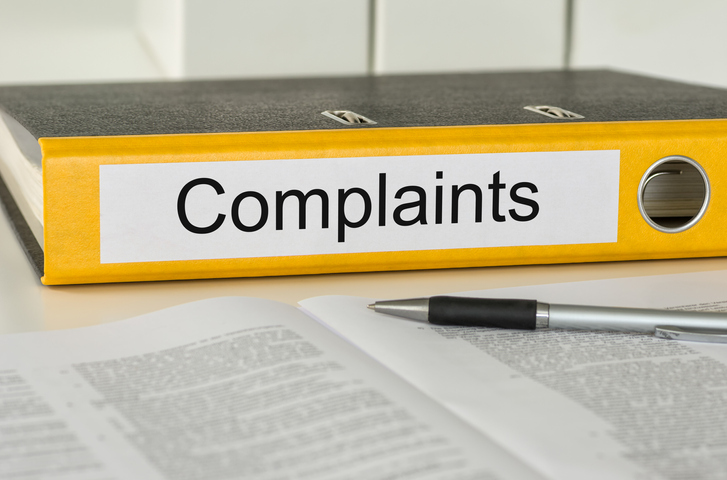Heads up! There’s a new session on the Hospital survey agenda in 2022. It’s the Joint Commission Grievance Review session. So, let’s take a look at what’s involved and how you can best prepare.
Joint Commission Grievance Review: What’s Included?
First, the surveyors will review your Complaint/Grievance policy. That policy is on the Documents List in the TJC Survey Activity Guide available on your Joint Commission Connect site. In addition, surveyors typically request your Grievance Log for a specific period of time. For example, the last six months.
Next, they review a sample of complaints/grievances from that log. They review both the complaint and your response to determine if you’re responding in a timely manner and according to your policy.
Also, you can also anticipate surveyors will touch upon the complaint/grievance process during tracers. They often ask patients if they understand how to file a complaint or grievance.
TJC and CMS Requirements: What’s the Difference?
Terminology: TJC vs. CMS
There’s a difference in terminology between TJC and CMS on this subject. TJC uses the term “complaint” in its standards but doesn’t have a formal definition for that term.
CMS uses both the terms “complaint” and “grievance.” They define a complaint as “a patient issue that can be resolved promptly or within 24 hours and involves staff who are present at the time of the complaint.”
CMS defines a grievance as “a formal or informal written or verbal complaint that is made to the hospital by a patient, or the patient’s representative, regarding the patient’s care (when the complaint is not resolved at the time of the complaint by staff present), abuse or neglect, issues related to the hospital’s compliance with the CMS CoPs, or a Medicare beneficiary billing complaint related to rights and limitations provided by 42 CFR 489.”
Further, CMS specifies that grievances include those submitted in the course of care or after the patient’s discharge. Also, all written complaints qualify as grievances.
It’s notable that, although TJC does not use the term grievance in their standards, they call this new session the “Grievance Review.” That title seems to convey that this review is grounded in the CMS requirements. Accordingly, the best way to structure your Complaint/Grievance policy is to base it on the CMS CoPs and Interpretive Guidelines. (See the CMS State Operations Manual Section A-0118 – A-0123.)
Specific Requirements: TJC vs. CMS
The Joint Commission standard covering complaints (RI.01.07.01) is quite broad. It states: “The patient and their family have the right to have complaints reviewed by the hospital.” There are seven Elements of Performance in the standard. These mirror the CMS requirements and require the hospital to have a policy and a written response to complaints.
However, the TJC standard doesn’t define a timeframe for responding to complaints. It allows the hospital to define the timeframe for complaint review and response.
In contrast, CMS is specific about timeframes. They state a response time of seven days is appropriate. They also indicate that “if an investigation cannot be completed or a grievance cannot be resolved within seven days, the patient or the patient’s representative should be informed that the process is ongoing and that he or she will receive a written response within a specified time period according to organizational policy.”
In addition, CMS specifies that the following instances should always be considered grievances:
- All written complaints, including those submitted via e-mail or fax
- Complaints that accompany a patient satisfaction survey and request a resolution
- Telephone calls to the hospital with a complaint about the patient’s care
- All verbal—including via telephone call—or written allegations of abuse, neglect, or noncompliance with CMS requirements
- Requests by a patient or his or her representative for a response from the hospital
- Requests by a patient or patient’s representative that his or her concern be treated as a formal complaint or grievance
The takeaway here is if you’re a deemed status hospital, you should design your Complaint/Grievance process based on the CMS requirements. That will more than cover the TJC requirements.
Data Analysis
In the Joint Commission Grievance Review session, surveyors also typically ask what data you’ve collected about complaints and grievances. Here, it’s important to show that you track and categorize complaints and grievances in order to identify trends.
Your complaint/grievance data is valuable information for quality improvement and should be integrated with your hospitalwide QAPI program. Indeed, the real value of complaints and grievances lies in what organizations do with the lessons learned.
Survey Readiness: What to Do Now
First, review your Complaint/Grievance policy. Make sure it meets the CMS requirements – which will also satisfy the TJC requirements.
Next, design your data collection process. How will staff report complaints? How will you distinguish between a complaint and a grievance? How will you categorize complaints and grievances so you can identify trends?
Then, make sure to track your response time for complaints and grievances. That includes tracking how and when you inform patients/families about grievances that will not be resolved within seven days.
Last, establish who will review the aggregate data on complaints and grievances. This should include senior leadership. In addition, there should be quarterly reports to the governing body.
For your survey, organize your complaint/grievance material for easy review by surveyors. Include your policy, your Complaint/Grievance Log, individual complaints/grievances received, response letters, and aggregate data.
With this approach, you’ll be survey ready. Moreover, you’ll have a robust process for managing complaints and grievances and benefiting from the lessons you learn.
For best practice recommendations, check out the ECRI article on Managing Patient Complaints and Grievances. It’s got some great tips and practical resources you can use in your setting.
Barrins & Associates Consultation
As we conduct our Mock Surveys and Continuous Readiness Consultations we’ve incorporated this new session into our agenda. As always, we’re prepared to support your ongoing compliance and survey readiness as we move forward in 2022.


